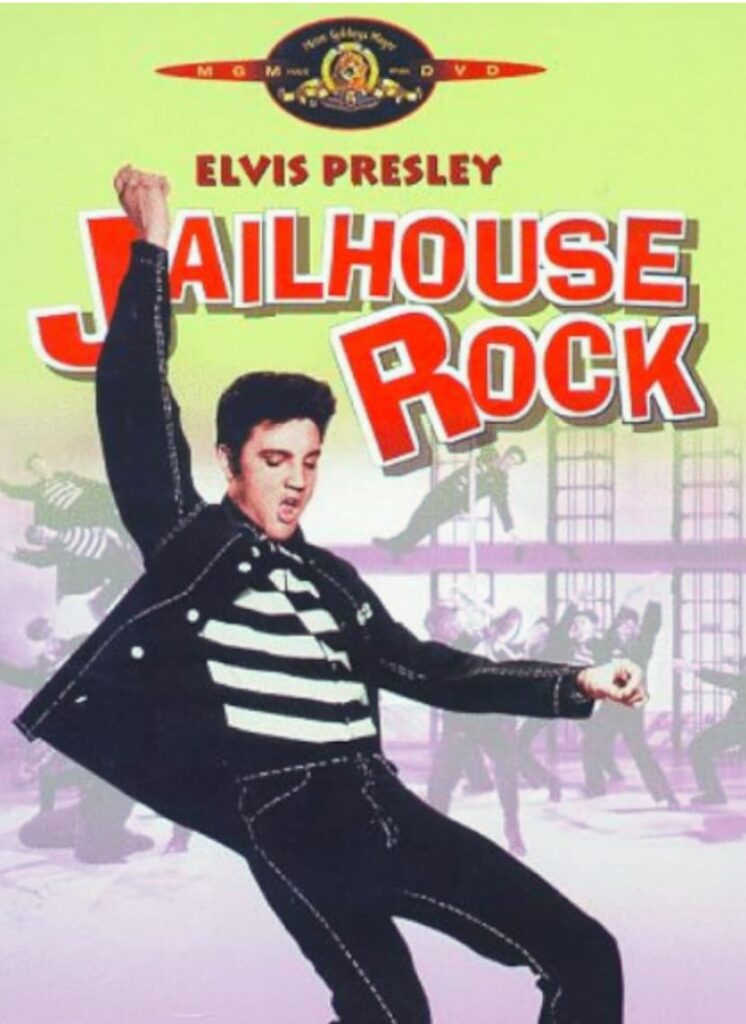
“Jailhouse Rock”: A Rebellious Anthem That Defined a Generation
There are some songs that aren’t just melodies and lyrics; they’re echoes of an era, indelible stamps on the collective memory of a generation. Elvis Presley’s “Jailhouse Rock” is precisely that—a defiant, electrifying anthem that captured the raw, untamed spirit of the 1950s and, in doing so, became a foundational pillar of rock and roll itself. For many of us who remember those exhilarating, sometimes tumultuous, years, this song isn’t just music; it’s a feeling, a moment frozen in time.
Released as a single on September 24, 1957, with “Treat Me Nice” on the flip side, “Jailhouse Rock” exploded onto the Billboard charts with a ferocity that was becoming synonymous with Elvis Presley. It entered the Top 100 at number 15 on October 15, and within a mere four weeks, by November 11, it had rocketed to the coveted number one spot, where it comfortably resided for six weeks. This wasn’t just a hit; it was a phenomenon, a testament to Elvis’s undeniable star power and the burgeoning cultural force of rock and roll. It dominated not just the pop charts but also the R&B charts, further cementing its cross-genre appeal. The song’s success was so immediate and undeniable that MGM, the studio behind Elvis’s third film, even changed the movie’s title to “Jailhouse Rock” to capitalize on the single’s expected popularity. The film itself premiered on October 17, 1957, just weeks after the single’s release, making for a truly synchronized cultural onslaught.
The story behind “Jailhouse Rock” is as intertwined with Hollywood as it is with music history. Written by the legendary songwriting duo Jerry Leiber and Mike Stoller, the song was specifically crafted for the film of the same name. Elvis plays Vince Everett, a construction worker who accidentally kills a man in a brawl and finds himself behind bars. It’s in this correctional facility that he discovers his musical talent, guided by a grizzled, older cellmate. The film culminates in the iconic “Jailhouse Rock” performance sequence, a choreographed spectacle that still resonates with its rebellious energy.
But beyond the silver screen, the meaning of “Jailhouse Rock” runs deeper than a mere prison party. It’s a defiant celebration of youthful exuberance and a subtle jab at authority. The lyrics, with their colorful cast of characters like “Shifty Henry” (a real, well-known musician, not a criminal, lending a touch of insider humor) and “the Purple Gang” (a notorious mob), paint a picture of inmates finding freedom and joy through music, even within the confines of a prison. It suggests that creativity and self-expression can flourish even in the most oppressive environments. The seemingly “silly” nature of the lyrics, as some initially perceived them, was transformed by Elvis’s snarling, yelping, and intensely serious delivery. He didn’t play for laughs; he embodied the raw, unbridled spirit of rebellion that the song subtly championed. This duality—the playful lyrics imbued with serious, rebellious intent by Elvis’s performance—is part of its enduring charm.
For us older folks, “Jailhouse Rock” evokes a powerful sense of nostalgia, transporting us back to a time when rock and roll was a new, sometimes scandalous, force. It was the soundtrack to sock hops and drive-in movies, to whispered conversations about rebellion and freedom. It was a time when Elvis wasn’t just a singer; he was a symbol, a lightning rod for changing societal norms. His hip-swiveling, his sneer, his sheer magnetism—it was all wrapped up in songs like “Jailhouse Rock.” It challenged the staid conventions of the post-war era, giving a voice to a burgeoning youth culture that was eager to break free. The raw energy of the guitar, the driving beat, and Elvis’s unmistakable vocal delivery were an electrifying call to arms for a generation that felt misunderstood and yearned for something different. It wasn’t just about a party in a jail; it was about breaking free from any kind of confinement, whether literal or metaphorical. And even after all these years, when the opening chords of “Jailhouse Rock” fill the air, a little piece of that rebellious spirit stirs within us once more.